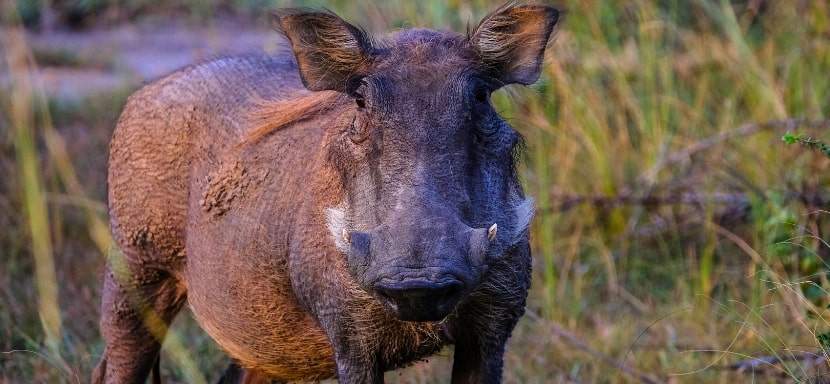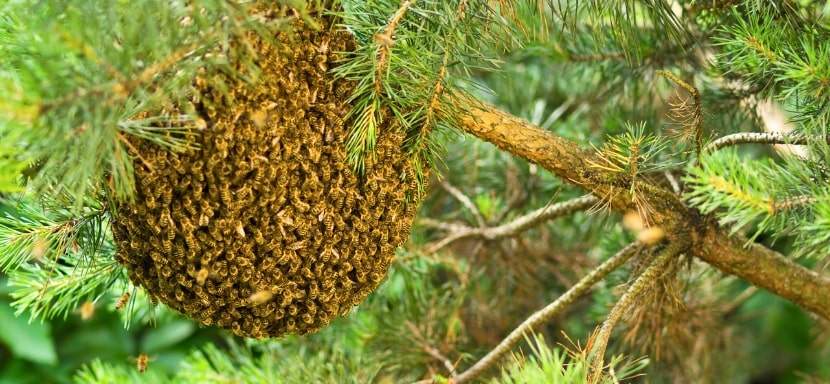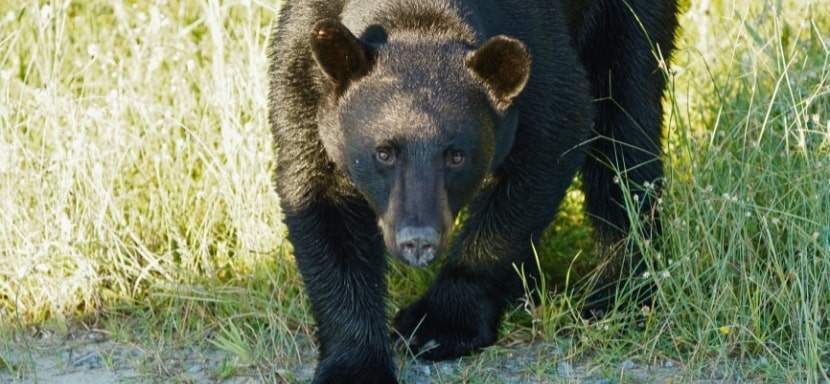How to Survive a Wild Boar Attack

Encountering a wild boar is like meeting your ex at a grocery store—unexpected, unnerving, and, in most cases, best avoided. Yet, wild boars aren’t interested in your baggage or drama; they’re just trying to mind their own business—unless they think you’re a threat.
Knowing how to survive a wild boar attack becomes vital if that happens. So, let’s dive into this wild adventure, shall we?
Key Takeaways
- Stay Calm and Move Slowly: Avoid sudden movements to prevent provoking the boar.
- Seek High Ground or a Barrier: Find something to climb or place between you and the boar.
- Defend Only If Necessary: If charged, use a stick or rock to protect yourself by targeting the boar’s snout.
Understanding Wild Boar Behavior
Wild boars are fascinating creatures, albeit ones you’d instead read about from the comfort of your couch. With their bristly coats, tusks that look straight out of a horror film, and an attitude that screams, “Don’t mess with me,” these animals are not to be trifled with.
Yet, they’re not naturally aggressive towards humans. The problem arises when they feel cornered or threatened, or you accidentally stumble upon a mother boar and her young—never a good mix.
10 Quick Tips on How to Survive a Wild Boar Attack
Wild boars can be dangerous if you find yourself in their territory. These ten tips will help you stay safe and react effectively if you encounter one in the wild.
- Stay Calm: Don’t panic; keeping cool reduces the chance of provoking the boar.
- Avoid Sudden Movements: Move slowly and deliberately to avoid startling the animal.
- Back Away Slowly: If possible, retreat without turning your back on the boar.
- Find Higher Ground: Look for a tree or rock to climb, putting distance between you and the boar.
- Use Barriers: Place objects like a tree or large rock between you and the boar to block its path.
- Make Yourself Look Bigger: Spread your arms or open your jacket to appear larger and more intimidating.
- Make Noise: Loud noises can sometimes deter a boar, so shout or bang on something if the boar is still distant.
- Avoid Eye Contact: Don’t stare the boar down; it could see this as a challenge.
- Use Objects for Defense: If attacked, use a stick, rock, or any object to strike the boar’s snout.
- Seek Medical Help After an Encounter: Even minor injuries can lead to infections, so get checked out by a doctor.
Spotting a Wild Boar: Know the Signs
Before we get to the nitty-gritty of surviving a wild boar attack, let’s talk about how to spot one in the first place. Wild boars are generally active at dawn and dusk, so stay alert if you’re wandering through the woods. Listen for grunting sounds—yes, grunting—similar to a pig, but with an edge. You might also notice disturbed ground where they’ve been rooting for food. If you see fresh signs, it’s best to turn around and find a different path.
Did You Know?
Wild boars have an extraordinary sense of smell, so acute that they can detect food buried up to three feet underground. This keen ability helps them find food and makes them highly aware of potential threats long before they see them.
The Best Way to Avoid a Wild Boar Encounter
As with most things in life, prevention is better than cure. The best way to survive a wild boar attack is to avoid one altogether. Stick to well-trodden paths, make some noise as you walk (wild boars generally don’t want to hang out with noisy humans), and keep your eyes peeled for signs of boar activity. Trust me, it’s better to be the annoying person humming loudly than the silent one who accidentally stumbles into a boar’s personal space.
What to Do If You See a Wild Boar
So, you’ve spotted a wild boar. First things first—don’t panic. Easier said than done, I know. But wild boars can pick up on fear, and panicking might make you look like a threat. Instead, take a deep breath and assess the situation.
Don’t Run—Stand Your Ground
Your first instinct might be to bolt, but running triggers the boar’s chase instinct. Wild boars are surprisingly fast and can reach up to 30 miles per hour. Unless you’re an Olympic sprinter, running doesn’t end well. Stand your ground, but don’t make eye contact—it can be seen as a challenge.
Back Away Slowly
If the boar hasn’t noticed you yet, start backing away slowly. Keep your movements calm and deliberate. This isn’t the time to whip out your phone for a quick TikTok. Just focus on putting some distance between you and the boar.
Look for Higher Ground or Barriers
Find something to put between you and the boar—a tree, a large rock, or even a car if you’re near one. Wild boars aren’t great climbers, so getting to higher ground can give you a serious advantage. A solid barrier can slow down or stop the boar’s charge if there’s nothing to climb.
10 Uncommon Facts About Wild Boar Attacks
While wild boar encounters are rare, they can be dangerous and unpredictable. These lesser-known facts highlight surprising aspects of wild boar behavior and the risks involved in an attack.
- Boars Target the Legs First: Wild boars often charge low, aiming for the legs to knock down their target, making it easier to inflict further injury.
- Boars Can Swim: Wild boars might swim to escape or even attack if cornered near water. They are strong swimmers and can cover surprising distances.
- Females Are More Aggressive: Female wild boars, especially when protecting their young, are more likely to attack humans than males.
- They Can Charge Multiple Times: Unlike some animals that charge once, wild boars may repeatedly attack if they feel threatened or if their first charge doesn’t neutralize the threat.
- Boars Communicate During Attacks: Wild boars often grunt or squeal loudly during an attack, using vocalizations to intimidate their opponent and possibly signal other boars in the area.
- Boars Have Poor Vision but Sharp Hearing: Wild boars rely more on their keen hearing and sense of smell than on sight, making them especially reactive to sudden noises or movements.
- Boars Can Reach Speeds Up to 30 MPH: Despite their bulky appearance, wild boars are incredibly fast, making them difficult to outrun if they decide to charge.
- Attacks Often Occur During the Rutting Season: Male boars become more aggressive during mating season (autumn and winter), increasing the likelihood of attacks during this time.
- Boars Can Attack in Self-Defense: Even if not provoked directly, wild boars may perceive certain actions, like blocking their escape route, as a threat, leading them to attack.
- Wounded Boars Are Especially Dangerous: A boar that is injured or cornered is likely to become more aggressive and unpredictable, often fighting back with increased ferocity.
How to Survive a Wild Boar Attack: When the Boar Charges
Let’s say the boar isn’t impressed by your slow retreat and decides to charge. Things get real here, and you’ll need to think fast.
Stay on Your Feet
The number one rule is to stay on your feet. Once you’re down, a wild boar can inflict severe damage with its tusks. If the boar charges, brace yourself and prepare to dodge. Wild boars often charge in a straight line, so a quick sidestep at the last moment can throw them off.
Use a Stick or Other Object to Defend Yourself
If you’re carrying a stick, a backpack, or anything else that can be used as a shield, now is the time to use it. Aim for the boar’s sensitive snout—their weak spot can cause them to back off. But remember, this is a last resort. You don’t want to engage unless you have no other choice.
Play Dead (But Only as a Last Resort)
Some experts suggest playing dead if you’re knocked down and the boar seems intent on continuing its attack. The theory is that the boar might lose interest if you’re no longer perceived as a threat. However, this is risky and should only be considered if all other options have failed.
What to Do After a Wild Boar Attack
Surviving the attack is only the first part. Once the immediate danger has passed, you should take a few steps to ensure your safety.
Seek Medical Attention Immediately
Wild boars can carry various diseases, and their tusks can cause deep, nasty wounds. Even if you feel okay, get checked out by a medical professional as soon as possible. Infections can set in quickly, and you don’t want to take any chances.
Report the Encounter
If you encounter wild boars in an area where they are uncommon, it’s a good idea to report the encounter to local authorities. This helps them keep track of wildlife activity and warn others who might be hiking in the area.
Wild Boar Safety Tips: Staying Safe in Boar Territory
The best way to survive a wild boar attack is to avoid it in the first place. Here are some tips to remember if you’re heading into boar territory.
Travel in Groups
There’s safety in numbers. Wild boars are less likely to approach a group of people than a lone hiker. If you can, always hike with at least one other person.
Make Noise
Wild boars usually prefer to avoid humans. Making noise as you walk can alert them to your presence, giving them time to move away before you get too close.
Avoid Feeding Wild Animals
Feeding wildlife is bad for many reasons, not least because it can attract wild boars. Once they associate humans with food, they’re more likely to approach and become aggressive if they don’t get what they want.
FAQs
What should I do if a wild boar charges at me?
Stay calm, avoid running, and try to find a higher ground or barrier between you and the boar. If the boar charges, defend yourself with a stick or any object available.
Can wild boars be dangerous to humans?
Yes, wild boars can be very dangerous, especially if they feel threatened or are protecting their young. Their tusks can cause serious injuries.
Is it common to encounter wild boars while hiking?
Encounters with wild boars are relatively uncommon but can happen, especially in areas where their populations are high.
How fast can a wild boar run?
Wild boars can run at speeds of up to 30 miles per hour, making it difficult to outrun them.
Should I play dead if a wild boar attacks?
Playing dead should be a last resort if you’re knocked down. The boar might lose interest if you’re no longer perceived as a threat, but this is risky.
What diseases can wild boars carry?
Wild boars can carry diseases such as brucellosis, tuberculosis, and trichinosis, which can be transmitted to humans through direct contact or consumption of undercooked meat.
Conclusion: How to Survive a Wild Boar Attack and Live to Tell the Tale
Surviving a wild boar attack is about staying calm, thinking on your feet, and being prepared. Understanding wild boar behavior and knowing what to do if you encounter one can significantly increase your chances of escaping the situation unscathed.
Remember, the key points are to stay calm, avoid sudden movements, and always be prepared to defend yourself as a last resort. Happy hiking—keep an eye out for those grunts in the underbrush.
10 Facts About Wild Boars and Their Behavior
Wild boars are fascinating creatures with behaviors and characteristics that often go unnoticed. This list uncovers ten lesser-known facts about wild boars, revealing surprising aspects of their lives and habits.
- Boars Are Omnivorous Opportunists: Wild boars eat almost anything, from plants and fruits to small animals and even carrion, making them highly adaptable in the wild.
- Boars Can Dig for Food: Their strong snouts are not just for show; boars use them to root through the soil, digging up roots, insects, and buried food sources.
- Boars Have a Complex Social Structure: Wild boars live in groups called “sounders,” primarily made up of females and their offspring. Males are often solitary except during mating season.
- Boars Use Mud to Cool Down and Protect Themselves: Wild boars wallow in mud to regulate their body temperature and create a protective layer against parasites and insects.
- Boars Can Be Found on Every Continent Except Antarctica: Wild boars are highly adaptable and have established populations across the globe, from forests in Europe to jungles in Asia and even in the Americas.
- Boars Have a Sharp Memory: They remember safe feeding grounds and dangerous areas, often avoiding traps and hunters by recalling past experiences.
- Boars Are Nocturnal in High-Pressure Areas: In regions with heavy human activity, wild boars often switch to a nocturnal lifestyle to avoid contact with people.
- Boars Communicate Using a Variety of Sounds: They grunt, squeal, and snort to convey different messages within their group, from warnings of danger to signals of comfort.
- Boars Can Live for Over a Decade: In the wild, wild boars can live up to 10-14 years, with some even reaching their mid-teens if they avoid predators and hunters.
- Boars Can Crossbreed with Domestic Pigs: When wild boars breed with domestic pigs, the offspring are known as hybrids. These hybrids can exhibit characteristics of both species, sometimes making them larger and more robust.
More Wild Frontier Scenarios
How to Survive a Mountain Lion Attack
Learn how to survive a mountain lion attack with practical steps to protect yourself and stay safe in. Surviving a…
How to Survive a Raccoon Attack
It’s a quiet evening, the moon is out, and maybe you’re taking out the trash or just enjoying a night…
How to Survive a Swarm of Bees
Surviving a bee swarm might sound like a scene out of a movie, but it’s a real concern for those who…
How to Survive a Skunk Spray
Getting sprayed by a skunk is a smelly situation that no one wants to find themselves in. However, if…
How to Survive a Bear Attack
Surviving a bear attack involves more than just reacting during an encounter; it requires understanding bear…
Recent Survival Posts
How to Survive a Layoff
Layoffs feel personal—even when they’re not. One day, you’re responding to Slack messages and forwarding…
How to Survive a Drug Test
I never imagined I’d be so emotionally invested in a paper cup. But there I was, standing under the fluorescent…
How to Survive an Interrogation
If you’ve ever been caught in the crosshairs of an overly enthusiastic mall cop or stared down by someone…
How to Survive a Nightclub Shooting
Nightclubs pulse with life—lights flashing, music pounding, bodies packed tight on the dance floor. It’s a place to…
How to Survive a Bachelor Party
A bachelor party is a delicate mix of celebration, chaos, and questionable decision-making, wrapped…
More Wild Frontier Survival Scenarios

How to Survive a Raccoon Attack
It’s a quiet evening, the moon is out, and maybe you're taking out the trash or enjoying a night on your porch. And suddenly, out of the shadows, bam! There it is—those black-ringed eyes glowing at you like some creature from a raccoon version of “The Shining.” If...

How to Survive a Swarm of Bees
Surviving a bee swarm might sound like a scene out of a movie, but it's a genuine concern for those who love the outdoors. Imagine this: you're hiking on a beautiful sunny day, enjoying the tranquility of nature, when suddenly you hear a low buzzing sound that...

How to Survive a Skunk Spray
Getting sprayed by a skunk is a smelly situation that no one wants to find themselves in. However, if you do end up as a target of this defensive mechanism, knowing how to handle the aftermath can make a huge difference. Let's explore some practical steps and advice...

How to Survive a Bear Attack
Bear Attack Survival Tips and Strategies Though rare, bear attacks can occur because bears remember food locations for years and may silently track humans to assess threats or follow scents. Surviving a bear attack involves more than just reacting during an encounter;...

How to Survive a Cicada Infestation
Cicada Infestation Survival Tips and Strategies Cicadas have fascinated humans for millennia. These insects are known for their distinctive life cycles, particularly the periodical cicadas that emerge in massive numbers every 13 or 17 years. The earliest recorded...
More Survival Scenarios

How to Survive a Layoff
When the Floor Falls Out: The Reality of a Layoff Layoffs feel personal—even when they're not. One day, you're responding to Slack messages and forwarding emails. Next, you're staring at your monitor as it logs you out... for good. Whether it's a restructuring, a...

How to Survive a Drug Test
The Cup, The Room, The Truth I never imagined I’d be so emotionally invested in a paper cup. But there I was, standing under the fluorescent hum of a strip-mall clinic, trying to recall the last time I ate a poppy seed bagel. That’s the thing about drug tests—they...

How to Survive an Interrogation
If you've ever been caught in the crosshairs of an overly enthusiastic mall cop or stared down by someone in a uniform with a clipboard and a glare, you’ve felt it — the chilly fingers of interrogation anxiety. And while most of us imagine interrogation scenes as...

How to Survive a Nightclub Shooting
Nightclubs pulse with life—lights flashing, music pounding, bodies packed tight on the dance floor. It’s a place to escape, feel the rhythm, and lose yourself in the crowd. But that same energy can turn deadly in seconds, transforming a night of fun into one of the...

How to Survive a Bachelor Party
A bachelor party is a delicate mix of celebration, chaos, and questionable decision-making, wrapped in the noble intention of sending the groom off into married life with a night he’ll (hopefully) remember. It’s a ritual as old as time—well, as old as men deciding...

How to Survive Your First Time at the Gym
Walking into a gym for the first time can feel like stepping into an alien world. The machines hum with purpose, the regulars move confidently, and you’re left standing there, clutching your water bottle, wondering whether you’re in the right place—or on the right...

How to Survive a Worldwide Communications Breakdown
Imagine waking up to silence. Your phone doesn’t buzz, your email won’t load, and even your local radio station crackles with static. A worldwide communications breakdown has hit. What next? For many, this doomsday scenario may sound like the opening lines of a...

How to Survive a Flash Flood While Driving
Surviving a flash flood while driving requires quick thinking, calmness, and a solid plan to ensure your safety. Preparation can make all the difference between a close call and a catastrophe in emergencies like this. This guide provides practical advice to protect...

How to Build an Emergency Kit
Emergencies don’t knock politely at the door. They barge in, uninvited, like a distant relative with a penchant for drama, turning your world upside down without warning. Whether it’s a power outage, a natural disaster, or an unexpected evacuation, the key to staying...

How to Protect Yourself From Insects in the Wild
There’s nothing like being out in the wild—birdsong echoing through the trees, the fresh scent of earth, and a deep sense of peace that makes you think, “Ah, this is what life is about.” But then comes the buzzing. Mosquitoes, ticks, and flies swoop in like uninvited...
